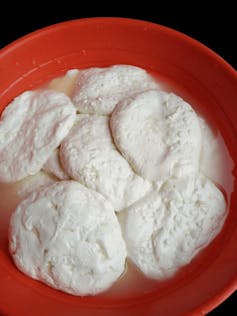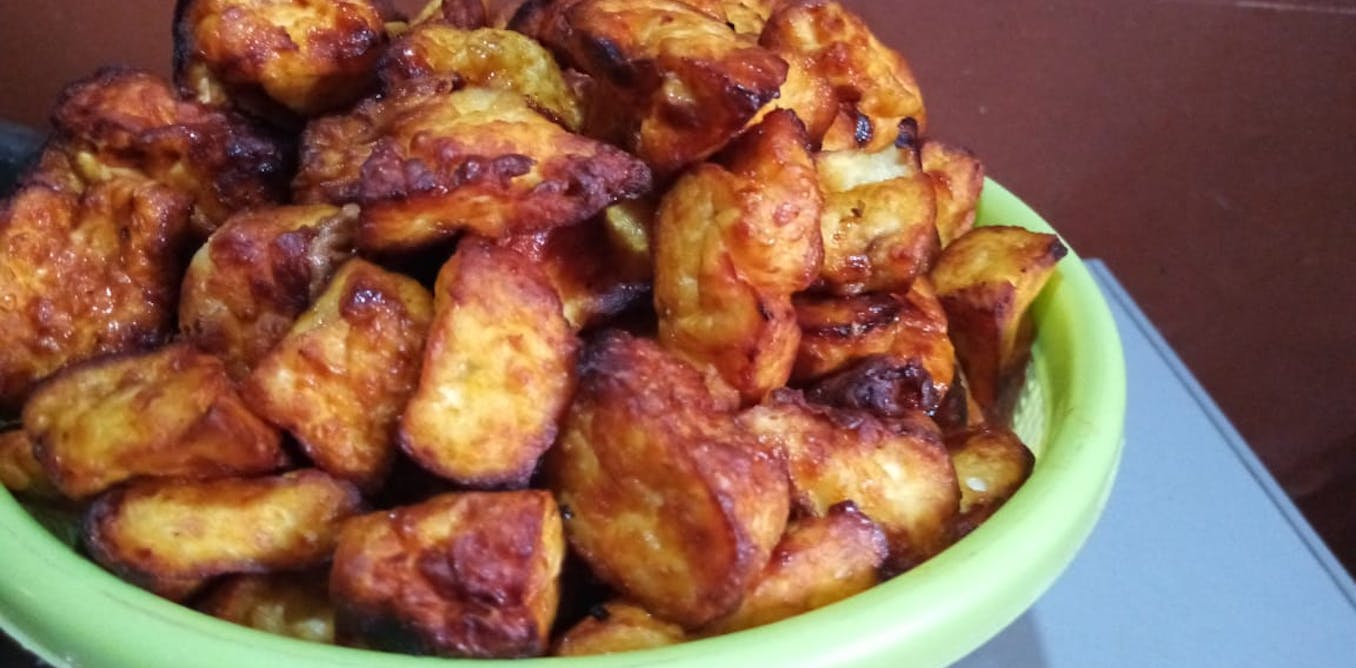Cheese is a extremely nutritious meals produced in a whole lot of types world wide. It’s all made by fermenting milk however the outcomes vary extensively in flavour, texture and finish makes use of.
The worldwide market worth of cheese was about US$83.4 billion in 2022 and is projected to exceed US$120 billion in 2028.
In Nigeria, the most well-liked cheese is wara, a tender product with a gentle, candy style and milky flavour. Wara is produced by coagulating cow’s milk with an extract of sodom apple (Calotropis procera, or bomubomu) and is historically offered in its whey (milk-like liquid), typically in a calabash, at room temperature.
Unhygienic circumstances throughout manufacturing and sale, and lack of excellent packaging supplies, may end up in wara containing dangerous microorganisms akin to E. coli, Staphylococcus aureus and different micro organism. These can spoil the cheese or make an individual unwell after consuming it.
Wara additionally has a really quick shelf life of about two or three days. This may be extended by refrigerating, drying or frying the cheese however these processes often have an effect on the style, texture, color, flavour and different sensory properties. Additionally they discard the whey, which is a vital part of wara.

Getty Photos
As Nigerian meals scientists, we got down to discover a option to protect wara extra successfully in its indigenous kind.
We used completely different quantities of sorbic acid and pure ginger as preservatives, individually and together, and in contrast the microbial load within the wara samples. We discovered that the very best mixture was 2.5% ginger with 0.05% sorbic acid, and that refrigeration was higher than conserving the cheese at room temperature.
Extending its shelf life and bettering its security might enhance demand and gross sales in any respect shops, from casual to supermarkets. It could make a nutritious meals extra accessible and be good for producers and meals processing companies.
Our analysis
In our experiment we preserved wara with chemical and pure preservatives: sorbic acid and ginger respectively. We saved the wara in whey for 3 weeks.
Sorbic acid was added to completely different samples at a focus of 0.05% and 0.1%, which is beneath its most permissible restrict of 0.3% in cheese in line with the worldwide Codex Alimentarius commonplace. The ginger (identified regionally as atalẹ) was ready by washing and peeling rhizomes, slicing them into skinny sheets, drying them in an oven at 50°C, and cooling, milling and sieving the dried product to acquire ginger powder.

Creator, Creator offered (no reuse)
Wara was produced by filtering 2 litres of contemporary cow’s milk. The milk was divided into 4 parts (A, B, C and D). Preservatives had been added within the following concentrations:
-
5% ginger to portion A
-
2.5% ginger and 0.05% sorbic acid to portion B
-
0.1% sorbic acid to portion C
-
no preservatives in portion D.
Every combination was boiled and an extract of sodom apple leaves was added whereas boiling. The curd (the strong which separates from the liquid whey) was moulded right into a cone form. Every curd was transferred right into a sterile plastic container, lined in whey and saved within the fridge or at room temperature.
The populations and forms of microorganisms related to the preserved wara had been decided each week. Microorganisms are vital in fermenting milk and most are useful, however might trigger spoilage if their progress just isn’t managed.
We additionally studied the impact of the preservatives on the sensory attributes akin to style, flavour, color, look and texture of the wara samples.
The end result
Preservation of wara with ginger and/or sorbic acid considerably lowered the inhabitants of microorganisms throughout storage. The usage of 0.1% sorbic acid to protect wara was the simplest in decreasing bacterial and fungal depend. The management pattern with out preservatives had the best inhabitants of microorganisms. The addition of two.5% ginger and 0.05% sorbic acid to wara lowered the microorganisms current and was far more efficient than the addition of 5% ginger alone.
The bodily examination of the saved wara confirmed that samples saved contained in the fridge retained their contemporary aroma all through the interval of storage. These saved on the shelf at room temperature confirmed a change in aroma after two weeks. The samples with out preservatives, saved at room temperature, had an offensive odour after every week. Spoilage of samples saved at room temperature was as a result of larger price of microbial metabolism.
There have been no pathogenic (disease-causing) organisms in any of the wara samples all through storage.
Wara samples saved contained in the fridge had higher high quality when it comes to microbial load, kind of microorganisms, color, texture and aroma than samples saved on the shelf at room temperature.
Freshly made wara samples with out preservatives had the best rating for style, flavour, color, texture and total acceptability. The values weren’t considerably completely different from the samples handled with 0.1% sorbic acid. Including 2.5% ginger and 0.05% sorbic acid lowered the sensory scores of wara in comparison with the 0.1% sorbic acid pattern.
In conclusion, we propose that Nigerian wara might be produced on a big scale by utilizing 0.1% sorbic acid or a mix of two.5% ginger extract and 0.05% sorbic acid as a preservative. It will improve the time wara might be saved after manufacturing, thereby rising the flexibility of the producers to scale up.
Preservation of wara can enhance vitamin and create employment.

